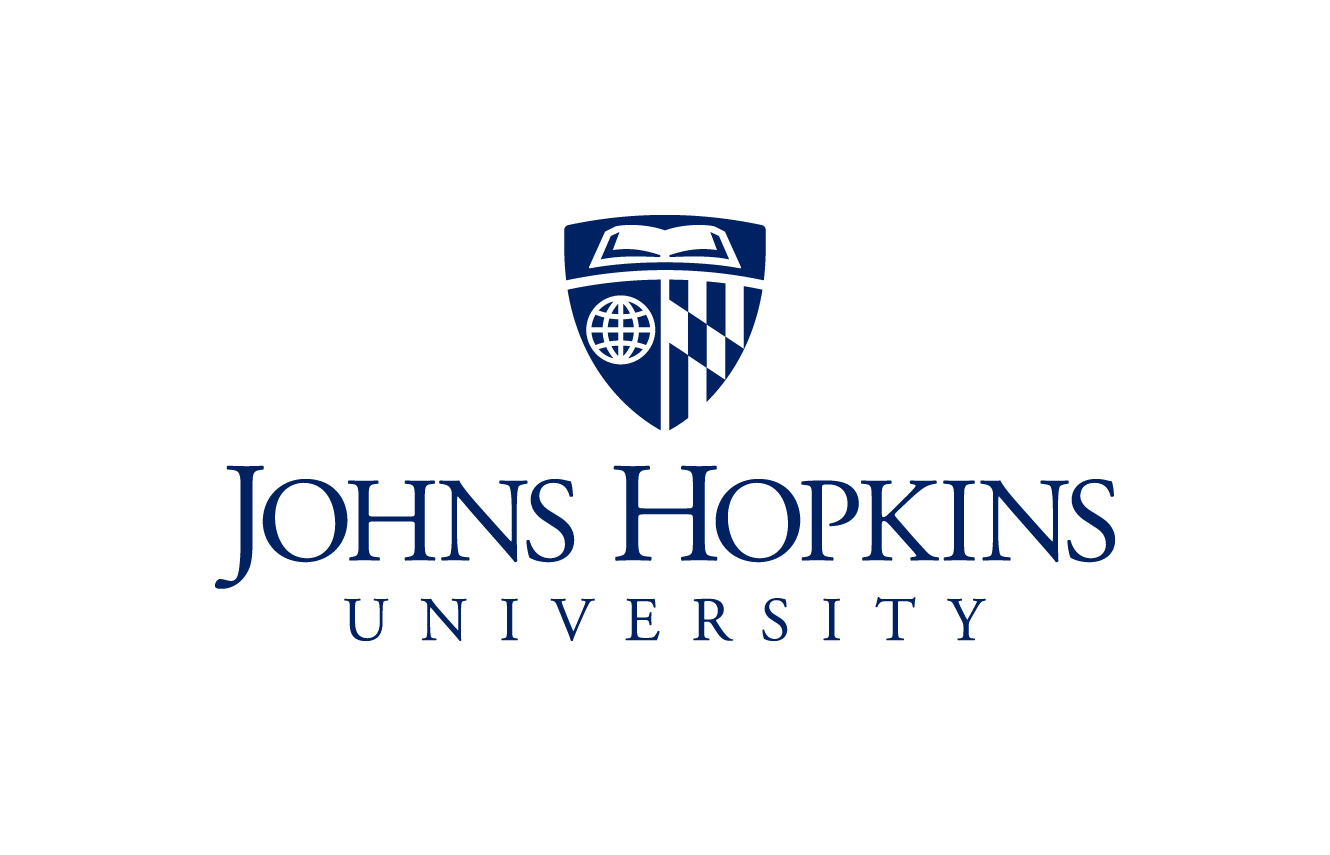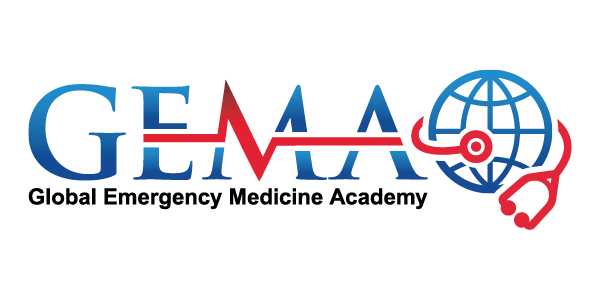JOHNS HOPKINS UNIVERSITY

The Johns Hopkins International Emergency Medicine & Public Health Fellowship empowers Emergency Physicians with the expertise to lead in global health, focusing on critical areas such as disease surveillance, emergency response, and health systems strengthening. Inspired by recent global crises like Ebola and COVID-19, the fellowship emphasizes a deliberate practice approach to cultivate leaders adept at addressing health disparities and delivering emergency care to vulnerable populations. Through rigorous training in teaching, research, and clinical practice, fellows are prepared to make a transformative impact in resource-limited settings worldwide.
Fellowship Experience
The IEM&PH fellowship program adopts a deliberate practice approach to training. Deliberate practice refers to a training/learning approach that is purposeful and systematic. The curriculum framework hinges on the pursuit of personal improvement across four essential components via well-defined, specific goals within targeted areas of development. The learning objectives for each fellow will be tailored to their own self-identified passions and core interests, knowledge acquired will be reinforced using focused mentorship strategies and training will be strengthened using continuous formative and summative assessment linked to performance. Graduates should have the necessary skills to facilitate career advancement in International Emergency Medicine (IEM) and Public Health (PH) both clinically and academically.
The fellowship program is designed to provide physicians the opportunity to obtain
(1) formal public health training; (2) comprehensive field experiences; (3) focused mentorship to develop a specialized skill set within IEM and; (4) exposure to a well-founded academic environment. The breadth of expertise both within the department of Emergency Medicine and across Johns Hopkins University will allow fellows to gain focused mentorship within one of the following areas of expertise; acute care research, public health research, health systems, disaster medicine/humanitarian response, global health education and global health surveillance.
Objectives of the Fellowship: Fellows will achieve the following objectives during the two-year program:
• Develop the knowledge, skills, and attitudes essential to provision of emergency care in complex clinical environments within low resource settings.
• Build cultural and ethical competency in international emergency medicine education and research.
• Develop knowledge and experience in diverse research designs and methods applicable to programs to address emergency care needs in lower resource settings.
• Gain exposure to developing, implementing, and evaluating acute care interventions within in low resource settings and understand the impact funding avenues, partnership, capacity building on developing sustainable programmatic change.
• Engage in opportunities for networking, partnerships and bidirectional collaborations in teaching, practice and research with global emergency medicine faculty members, program implementers, trainees, and policy makers.
• Define a career-path within a focused area of specialization within IEM and PH, aligned with their own passions and core interests.
The fellowship program is designed to provide physicians the opportunity to obtain
(1) formal public health training; (2) comprehensive field experiences; (3) focused mentorship to develop a specialized skill set within IEM and; (4) exposure to a well-founded academic environment. The breadth of expertise both within the department of Emergency Medicine and across Johns Hopkins University will allow fellows to gain focused mentorship within one of the following areas of expertise; acute care research, public health research, health systems, disaster medicine/humanitarian response, global health education and global health surveillance.
Objectives of the Fellowship: Fellows will achieve the following objectives during the two-year program:
• Develop the knowledge, skills, and attitudes essential to provision of emergency care in complex clinical environments within low resource settings.
• Build cultural and ethical competency in international emergency medicine education and research.
• Develop knowledge and experience in diverse research designs and methods applicable to programs to address emergency care needs in lower resource settings.
• Gain exposure to developing, implementing, and evaluating acute care interventions within in low resource settings and understand the impact funding avenues, partnership, capacity building on developing sustainable programmatic change.
• Engage in opportunities for networking, partnerships and bidirectional collaborations in teaching, practice and research with global emergency medicine faculty members, program implementers, trainees, and policy makers.
• Define a career-path within a focused area of specialization within IEM and PH, aligned with their own passions and core interests.



Fellowship Curriculum
The curriculum has four components:
1. Formal public health training: Fellows will have the opportunity to complete a Masters in Public Health (MPH) degree from the world renowned Johns Hopkins Bloomberg School of Public Health (JHSPH). The fellowship director will provide guidance on different elective course selections, concentration programs (i.e., epidemiology, biostatistics, health resources management, behavioral sciences and community etc) and customization options.
2. Comprehensive field experiences: During the fellowship, the fellow will be encouraged and supported to participate in a range of field experiences depending in their areas of interest. Field experiences will can include participation in education programs, field-based research projects, clinical service delivery and rotations at the WHO.
3. Focused mentorship to develop a specialized skill set within Global EM: Each fellow will be required to undertake a primary research project during fellowship under the guidance of a project mentor. Each project will include submission of one or more individual grant proposals, project design, proposal writing, Submission of one or more global emergency medicine-related research protocols to an Institutional Review Board (IRB), completion of one or more resource-appropriate global emergency medicine investigative research projects at one or more international sites, data collection, data analysis, presentation of one or more individual research abstracts at a national or international conference and/or publication of one or more manuscripts in a peer-reviewed journal.
4. Academic Emergency Medicine: The fellow will work as a member of the clinical faculty of the JHU Department of Emergency Medicine. The fellow will participate in all academic activities in the Department of Emergency Medicine, including grand rounds presentations, conferences and resident teaching. The fellow will also have the opportunity to participate in a junior faculty development program which consists of monthly seminars.
1. Formal public health training: Fellows will have the opportunity to complete a Masters in Public Health (MPH) degree from the world renowned Johns Hopkins Bloomberg School of Public Health (JHSPH). The fellowship director will provide guidance on different elective course selections, concentration programs (i.e., epidemiology, biostatistics, health resources management, behavioral sciences and community etc) and customization options.
2. Comprehensive field experiences: During the fellowship, the fellow will be encouraged and supported to participate in a range of field experiences depending in their areas of interest. Field experiences will can include participation in education programs, field-based research projects, clinical service delivery and rotations at the WHO.
3. Focused mentorship to develop a specialized skill set within Global EM: Each fellow will be required to undertake a primary research project during fellowship under the guidance of a project mentor. Each project will include submission of one or more individual grant proposals, project design, proposal writing, Submission of one or more global emergency medicine-related research protocols to an Institutional Review Board (IRB), completion of one or more resource-appropriate global emergency medicine investigative research projects at one or more international sites, data collection, data analysis, presentation of one or more individual research abstracts at a national or international conference and/or publication of one or more manuscripts in a peer-reviewed journal.
4. Academic Emergency Medicine: The fellow will work as a member of the clinical faculty of the JHU Department of Emergency Medicine. The fellow will participate in all academic activities in the Department of Emergency Medicine, including grand rounds presentations, conferences and resident teaching. The fellow will also have the opportunity to participate in a junior faculty development program which consists of monthly seminars.
Projects
| Project Name & Description | Details |
|---|---|
| Johns Hopkins India Institute: COVID Task Force |
Building a clinical resource knowledge hub for practitioners in LMIC settings. Lead Faculty: Dr. Bhakti Hansoti. Timeline: June 2021-ongoing. Location: India
|
| GHSA Award: Emergency Response Mapping |
Survey of ERO capacitation and mapping. Lead Faculty: Dr. Bhakti Hansoti. Timeline: July 2021-March 2022 Partner(s): CDC and JHPIEGO Location: Central America
|
| CDC NPHI Program Strengthening Award |
Support the CDC NPHI program to strengthen NPHIs in LMIC settings and build capacity against global health security threats. Lead Faculty: Dr. Bhakti Hansoti. Timeline: September 2020-ongoing. Partner(s): CDC and JHSPH. Location: Botswana, Zambia, Sierra Leone
|
| Emergency Medicine Residency Training |
Working with local residency leadership in established EM residencies in LMICs to design and implement. Lead Faculty: Dr. Amelia Pousson. Timeline: June 2020-ongoing. Partner(s): SAEM. Location: India, Rwanda
|
| Basic Emergency Care Course |
Facilitate the roll out of WHO/ICRC basic emergency care course in LMIC settings. Lead Faculty: Dr. Nicholas Risko. Timeline: July 2021-ongoing. Partner(s): USAID and JHPIEGO. Location: Afghanistan, Bangladesh, Mozambique
|
| Emergency Care Development in Lusophone Countries |
Participation in activities of the IFEM Portuguese Translation Task Force. Lead Faculty: Dr. Nicholas Risko. Timeline: June 2020-ongoing. Partner(s): IFEM Location: Mozambique, Brazil, Guinea Bissau, Angola
|
Alumni

Mary Bolgiano
Fellow
Teagan Lukas
FellowContacts

Additional Application / Interview Information
To submit your application, include a letter of intent, personal statement, CV, and two letters of recommendation. Please upload the necessary applications to the website directly. You are also welcome to notify via email to bhansot1@jh.edu and mrode4@jhmi.edu that an application has been submitted. Applications will be reviewed by the Johns Hopkins University Center for Global Emergency Care Faculty. Offers of interview will be sent by September 12th. Interviews will be held virtually on September 19th with the option to meet in person at ACEP.
In your letter of intent, please describe what makes you interested in our program in particular. At least one of your two letters of recommendation should speak directly to your emergency medicine clinical skills, while the other letter should speak to your research, teaching, and/or service experience. This fellowship program has a strong research focus and thus preference will be given to fellows interested in research and submitting a UJMT Fogarty fellowship application for a field-based experience in year 2.
Application Criteria
Prospective fellows must be American Board of Emergency Medicine (ABEM) board certified or board eligible by the July 1st start date. Prospective fellows must be U.S. citizens or hold either an H1B or O visa.
Application Process
All applications must be submitted by the application deadline through the SAEM Application Portal button below. Please note, you must also register for the NRMP Match. For questions regarding the application portal, contact helpdesk@saem.org.
Important Dates
Applications may only be submitted between
Jul 01, 2022 at 12:00PM and Sep 09, 2022 at 12:00PM
Application Deadline
Sep 30th 2023 2300 EST
Interview Date
October 3rd 2023 0900 EST

